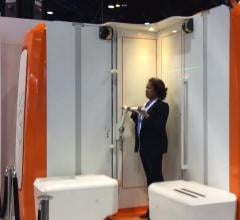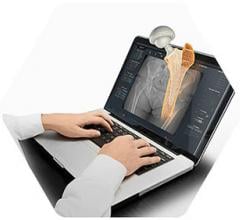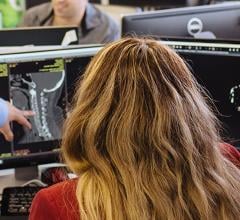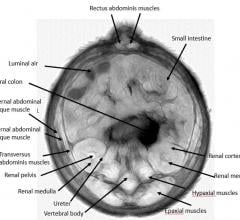January 3, 2008 - Mitchell Sheinkop, M.D., will be the first in the U.S. to surgically implant the just-approved Nex Gen LPS-Flex mobile bearing knee on Feb. 20 at the Neurologic and Orthopedic Hospital of Chicago.
Last week, the FDA approved the Zimmer Holdings knee, which the company says is the next generation of knee prostheses for active adults, especially amateur and professional athletes.
Dr. Sheinkop was one of eight physician investigators in the U.S. who participated in the clinical trial proceeding FDA approval.
The main difference between a fixed bearing, or traditional knee replacement, and a mobile bearing knee is that the articulating surface is free to rotate slightly along with the patient’s natural movement.
“The design of this knee allows for better range of motion and improved flexibility for daily activities, whether around the home, at work or during sports and exercise,” said Dr. Sheinkop, an orthopedic surgeon and director of joint replacement at the NOHC. “The knee is designed for patients who want high-flexion and have demanding lifestyles/habits. If you want to do deep knee bends, this is the knee you should choose.”
Athlete and lawyer Charles Zarzecki, age 50, participated in the clinical trial for the Next Gen LPS-Flex mobile bearing knee and now plays in a Chicago-based USA Hockey team that placed second in the 2007 National Pond Hockey Championships.
“In 2004, I was playing competitive basketball and there was little cartilage left in my knee,” said Zarzecki. “After four arthroscopic surgeries, my leg still bowed out, and I knew it was time to do something if I wanted to continue my active lifestyle.”
Besides hockey, Zarzecki’s knee allows him to participate in golfing, biking, spinning and snow skiing.
In 2001, Dr. Sheinkop was first exposed to the mobile bearing knee through an invitation from the Ministry of Health for the United Arab Emirates. At that time he recognized the impact a high performance prosthesis could have to his athletic patients back at home.
The Neurologic and Orthopedic Hospital of Chicago is the country’s first freestanding acute care hospital dedicated exclusively to neuroscience and orthopedic services.
For more information: www.neuro-ortho.org

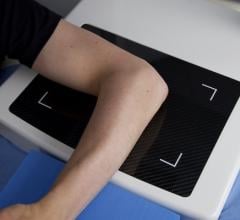
 July 31, 2025
July 31, 2025 

